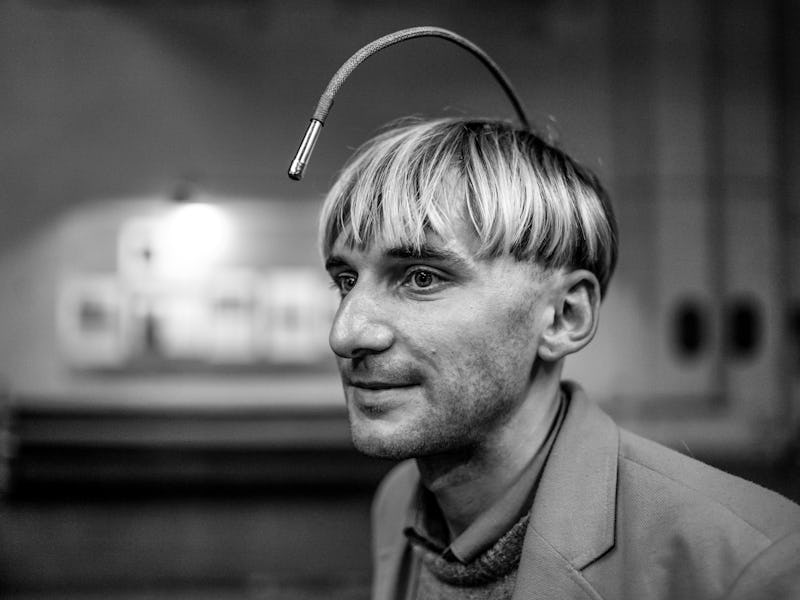The 7 Science Books That Will Help You Survive 2017
Everything is super complicated. Time to read.

While bad news can’t be confined to a calendar year, you would be forgiven if you feel like 2016 was a spectacularly fraught one. Sure, emotionally resetting at the toll of midnight is something we do to ignore our mortal shell and the ongoing march of time, but there’s something earnestly encouraging about looking at 2017 as a fresh slate. And there are few better things to fill a fresh slate with than books written with the purpose of expanding the mind and one’s sense of wonder.
Frankly, no one knows what 2017 will hold. And that’s not just a political reality; it’s a scientific and technological one. The advent of genetic editing and widespread automation will fundamentally alter both the human and natural landscape, and they will do so largely without regulatory guide rails. In short, life on Earth will get complicated in the Anthropocene. But we know this: There will, for now, still be books. It’s a reassuring constant, if not a particularly effective business model.
This year, science and technology books will be huge, which is to say, “bigger than usual,” as readers struggle to get their arms around big abstract ideas that suddenly seem to affect day-to-day lives. It’s a bumper crop, but here are seven books that we think will do the most to help us understand 2017 — whatever happens.
The Fourth Industrial Revolution
As an economist, engineer, and founder of the World Economic Forum, Klaus Schwab has an understanding of how the world economy is altered by technology and science. In The Fourth Industrial Revolution, Schwab argues that it will be the specific fusing of the “physical, digital, and biological worlds” that will impact all industries at an unprecedented rate. From 3D printed organs to the proliferation of nanomaterials, Schwab examines the advancements that will make the fourth industrial revolution eminent. January release.
From Bacteria to Bach and Back
In his upcoming novel, philosopher and cognitive scientist Daniel Dennett sets out to answer one of the meaningful mysteries of humankind: What is consciousness and why do we have it? Billed as “part philosophical whodunnit, part bold scientific conjecture,” the book traces how biology and natural selection drove language and culture. This process, he argues, molded our developmental ways of thinking, allowing us to have an elegant mind. February release.
The Inkblots
Rorschach and his test.
The Rorschach test is a controversial one: While no other psychology test is quite as famous, the idea that an interpretation of inkblots can actually reveal one’s nature is contested among psychologists. In The Inkblots, writer Damion Searls examines how psychologist Hermann Rorschach came to develop the test, a marriage of art and science, while working alone in a Swiss asylum in 1917. Rorschach created the test as a diagnostic tool for schizophrenia because he believed that individualistic human nature was a reflection of how we saw the world. The masses then popularized it, desperate to have a tool that would better let them know themselves. February release.
Homo Deus: A Brief History of Tomorrow
While already released in the United Kingdom, Homos Deus will be available for purchase in the United States in February. A sequel in spirit to author Yuval Noah Harari’s Sapiens, his latest book examines how the plagues of humankind — namely famine, war, and disease — have turned from uncontrollable forces into manageable challenges over the course of history. With Homos Deus, Harari attempts to predict what will be the new obsessions to replace these plagues, and argues that where we go from here will determine our next stage of evolution. February release.
The Body Builders
Neil Harbisson has "biohacked" his body with an implanted camera in his head.
Adam Piore’s The Body Builders is less about the weight-lifting champions of the world, and more about humans who are actively working to transcend the limits of the human body through bioengineering. His case subjects range from those attempting to rebuild bodies ravaged by trauma to those who wish to use technology to exacerbate the capability of both muscles and the mind, resulting in a portrait of humans who believe that they can be very much more than that. March release.
The Reality Frame
Prolific science writer Brian Clegg’s new book looks to answer the not-so-simple question of how our sense of reality is formed. He argues that reality is an amorphous, shifting sense of perception that is, in equal parts, shaped by philosophy and science. Clegg argues that embracing the fact that reality is uncertain allows for a better sense of what it means to be human. With a very uncertain new year at its start right now, Clegg’s poetic mix of hard facts and thoughtful musings could be exactly what we need. March release.
Face Value
Psychologist Alexander Todorov examines the science of first impressions in his upcoming book Face Value. He discusses the evolutionary reasons why we rely on someone’s face to judge their character — and explains why these first, snap judgments are typically wrong. An intermix of cognitive science, computer science, and psychology, Face Value is the academic embodiment of “you can’t judge a book by its cover.” May release.